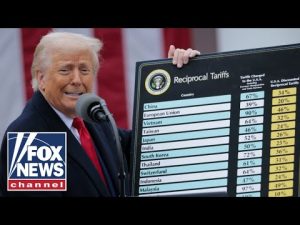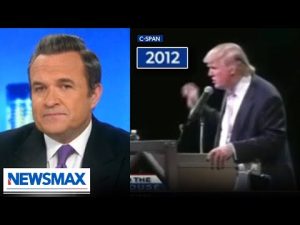**Judges, Laws, and Political Drama: The Curious Case of National Injunctions**
In the theater of American politics, the age-old battle over who gets to wield power takes center stage yet again. This time, it’s a heavyweight clash between rights, laws, and the role of judges in the democratic process. Recently, a passionate debate emerged over the legality and constitutionality of nationwide injunctions, with Republicans pointing fingers at their Democratic colleagues for their seeming hypocrisy regarding the rule of law. It seems that when it comes to enforcing laws and protecting constitutional rights, the party lines have never been more visible.
At the heart of the discussion was a Republican senator who illuminated a peculiar trend: as the nation has evolved, so too has the number of nationwide injunctions issued by judges. The senator highlighted that before 1963, these types of injunctions were rarely, if ever, sought from the bench. However, fast forward to the present, and one finds that the courts have become the site of political maneuvering—a veritable chess game where legal strategies are employed to bypass legislative hurdles. In just the last two months, an astonishing number of injunctions have cluttered the courts, seemingly more than were issued against former Presidents Bush and Obama during their entire administrations.
What led to this sudden uptick? The Republican senator deftly pointed out that this flurry of legal maneuvers appears to be a calculated tactic by Democrats to sidestep what they consider an inconvenient electoral reality: the ongoing support for former President Donald Trump. They characterized the situation as “lawfare,” with the implication that the Democratic Party was engaging in a strategic assault on the Constitution itself. The discussions painted a vivid picture of a party so embittered by electoral outcomes that it resorted to using the judicial system as a pawn in its political agenda.
An interesting layer to the debate was the assertion that this judicial activism was at odds with the principles of democracy. One of the key arguments posed was that the power to establish policies and laws lies with elected representatives, not with unelected judges. This distinction, though nuanced, is critical in understanding the friction between political parties. Elected officials create laws to be enforced, while judges interpret those laws. When judges begin making policy decisions, the foundational tenet of democracy—that it is the will of the people that prevails—seems to be undermined.
Amidst the thick fog of political posturing, some Democrats responded with their own critiques. They argued that the presence of nationwide injunctions was not a mere product of political gamesmanship but rather a necessary check against actions taken by the executive branch that might violate constitutional rights. Their stance seemed to suggest that the reality of the judicial landscape is anything but black and white.
As the debate unfolded, humor and exasperation filled the room, with senators trading barbs about each other’s strategies and motivations. While the proceedings were intended to clarify the role of judges and the application of law, they often devolved into the very theatrics typical of political discourse, prompting laughter and sighs from observers alike. In this ongoing saga of checks and balances, it appears that humor and severity share the stage, underscoring the theatrical nature of politics in America.
In the end, questions remain: Who truly holds the power to decide elections? Is it the will of the people, or do unelected judges get to play puppet master? One thing is certain—the political conversation surrounding the judiciary will continue to ignite debate, raise eyebrows, and potentially reshape the landscape of American law for years to come. It’s safe to say that everyone will be watching as the drama unfolds, popcorn in hand, in what promises to be a long and winding road of legal intrigue.
So as the players in this political play continue to engage in their courtroom dance, all eyes are drawn to the judges, the laws, and the politicians, waiting to see how this legal saga will play out. And if anything, it reminds us that in politics, much like in life, the plot thickens before it eventually resolves—sometimes with a twist that no one saw coming!







